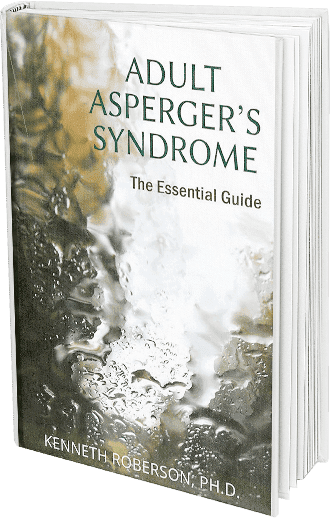
Can two people have a successful marriage if one has Autism Spectrum Disorder and the other doesn’t? Yes, provided that both partners understand two things: how ASD affects the person who has it and how Autism affects the marital relationship itself.
Together with the desire to prevail, these two concepts provide the necessary ingredients to turn a disappointing, unsatisfying relationship into a successful, intimate marriage.
Here are suggestions for improving a marriage between someone with Autism Spectrum Disorder and a non-Autism, or neurotypical (NT), partner.
- For the partner with ASD, consider that your NT spouse is probably right when he or she tells you how you contribute to the marital problems. It’s likely, for example, you do have difficulty perceiving subtle social cues. You may not be adept at detecting emotional reactions. You probably dislike conflict and are prone to hear differences of opinion as criticism about you. Typically, negative emotions are difficult for you, and when that happens you may refuse to communicate and/or lash out in a hurtful way.
Accept your partner’s feedback about these challenges. At the very least, given them thought and consideration.
- Listen! So often, the NT spouse just wants to be heard. If he or she knows you are listening, tension and conflict can be avoided. Communication is the first thing to go when a marriage is breaking down, so devote yourself to listening to what your partner wants to tell you. Ask for clarification of things you don’t understand and do so in a nondefensive, respectful way.
- For the NT partner, shift your focus away from what you are not getting from your Autism Spectrum Disorder partner to the positive qualities he or she brings to your relationship. Dwelling only on what is negative drives your ASD partner away and is a recipe for perpetual unhappiness.
- Your Autism Spectrum Disorder partner’s rituals, routines, and quirks are not meant to hurt you. They happen because of the condition he or she has. You don’t have to like them but try not to take them personally. Accepting your partner’s differences and knowing that he or she cares is crucial to the overall success of your marriage and is one of the decisive factors in saving an unhappy marriage.
- In addition to rituals, routines, and strange behavior, your spouse with Autism can appear egotistical, selfish or uncaring, when in fact this is not the case. He or she is not necessarily intending to be hurtful. It is a consequence of not understanding how you feel and what you need. Remembering this will ease your worries and distress considerably.
- Pay attention to what your NT spouse wants and needs. Make a point of doing something each day to make your spouse happy. If she appreciates you doing the dishes, do them. If she likes hearing how much you care about her, surprise her with an occasional note of gratitude. Volunteer to help her. Spend a day doing what she wants rather than what you want.
It’s the small things that matter. Your behavior often says far more than your words. If you act caring, she will feel cared for.
- Whether you are the ASD or NT partner, stop trying to control your spouse’s behavior. Telling your partner how he or she should behave is likely to create resentment and distrust. And why should anyone change if all they hear is what’s wrong with them?
Instead, ask yourself what you can do to improve your marriage. Then concentrate on carrying through with those suggestions. Remember, in a happy marriage, partners know they can only control their own behavior, not their partner’s.
- Married couples need time apart. If your NT spouse needs time to spend with friends, to exercise, devote to a hobby, or just time to be alone, respect that need to have independence. At the same time, while you may be unsociable challenge yourself to socialize with others together with your spouse. You may enjoy having your spouse’s full attention but nobody can be the center of attention all the time and also be a successful, caring partner.
These are not radical suggestions for improving a marriage but they are essential. Without understanding the challenges that Autism creates in a partner, it is hard to adopt strategies to address and overcome those challenges. And without understanding the influence of Autism on a marriage, the necessary pieces for success are hard to find. Together, however, they are crucial ingredients of a happy marriage.




